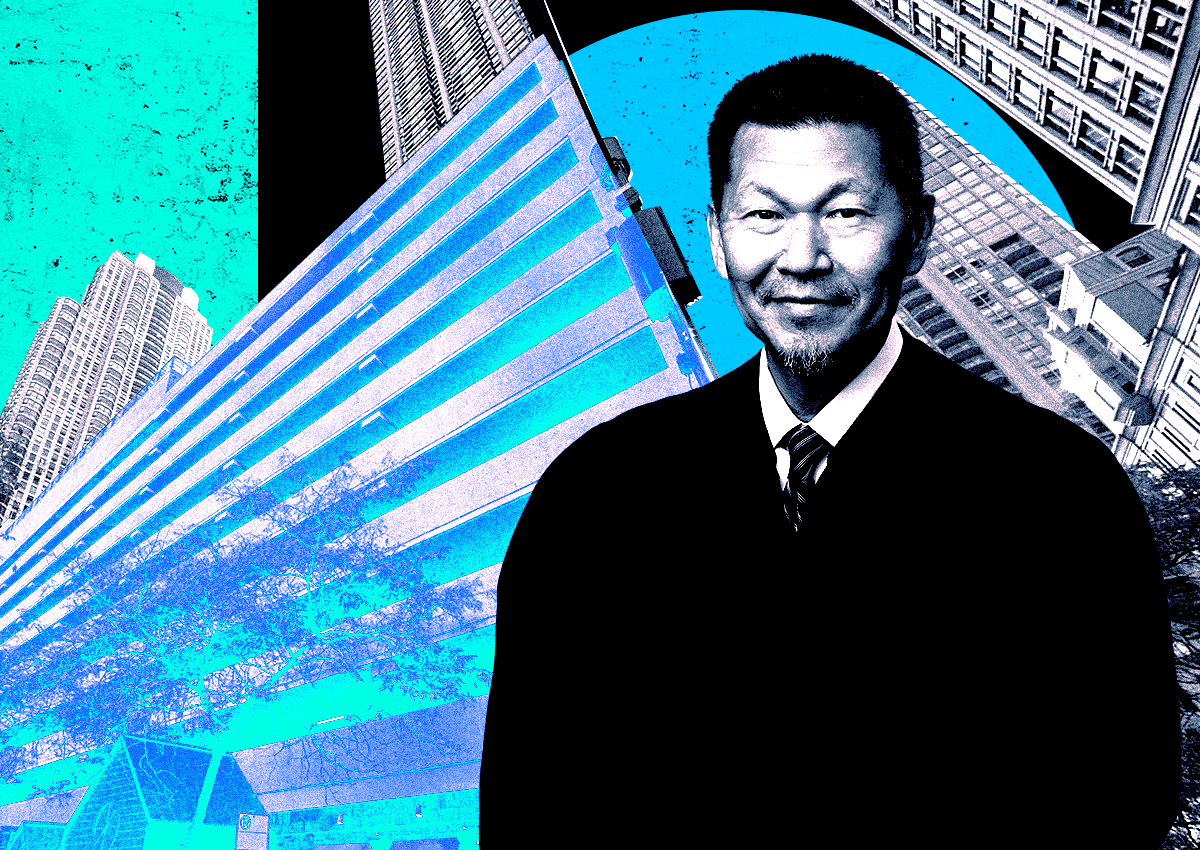Judge Freezes Developers’ Assets, Bankruptcy Faces Scrutiny
Things have gotten worse for Jason Ding and Jeffrey Laytin, the would-be developers of a 60-story River North proposal that never got off the ground and became tied up in litigation.
The pair have more recently run afoul of a federal court and now need a judge’s permission to access their funds, according to legal filings.
Federal Judge Young B. Kim for the Northern District of Illinois earlier this month found Laytin and Ding — whose New York-based Symmetry Property Development owns the troubled development site on the northeast corner of Wabash Avenue and Superior Street — violated an order that required them to tell the court how much money they had coming in from a property in Gary, Indiana.
Laytin and Ding were supposed to disclose their financial dealings as part of a $28 million settlement agreement with Chinese investors who raised around $50 million for the doomed development project through the federal EB-5 program that offers foreigners U.S. visas in exchange for their investments.
The money was supposed to go toward building Symmetry’s proposed 60-story residential-and-hotel project dubbed the Carillon Tower. The investors filed a class-action lawsuit several years ago after it became clear the project was encountering hurdles with getting building permits from local leaders. The suit led to the settlement agreement between the developers and investors last year.
The investors said Laytin and Ding have yet to pay them significant portions of the settlement, alleging the two were funneling cash to themselves and family members instead of funding the settlement.
“As always, we are fully intent to fulfill our agreement on [the] Carillon matter,” Ding told The Real Deal in an email. “Preserve the asset, and allow new financing to come through is [the] only path to resolve these matters. We are looking forward to that.”
Judge Kim, however, put up guardrails on how the developers are using and receiving money, including from a business tied to the Indiana property that was subject to a court order meant to monitor their finances. The move came after Chinese investors apparently discovered payments totaling more than $1 million flowed between accounts controlled by Ding and Laytin, while the investors weren’t getting paid their settlement.
The judge didn’t buy an argument the developers made in court this month that the payments they received weren’t income or salaries and rather meant to cover business expenses. Kim ruled that Laytin misrepresented his assets on an income and property statement submitted to the court, and instructed both he and Ding to provide the Chinese investors information on all the open bank accounts the developers can access. They were also ordered to notify the court when they receive any assets or money, including loan proceeds to any of their companies, and to seek court approval before withdrawing or transferring any funds, according to the Nov. 6 court filing.
Meanwhile in bankruptcy court, the federal trustee overseeing Symmetry’s Chapter 11 petition for protection from creditors wants the developer’s case to be dismissed, he said in court filings last week.
The bankruptcy petition was submitted by Symmetry earlier this year on the eve of a scheduled foreclosure auction of the Chicago property. The bankruptcy scuttled the foreclosure sale, which was driven by a complaint from an entity tied to New York-based firms Arena Investors and Madison Realty Capital, which loaned more than $9 million to a Symmetry affiliate in 2017.
When that debt went unrepaid, the lenders sued to foreclose on the property and obtained a judgment allowing them to take title to it via auction. Now, Ding and Laytin’s Symmetry has until Thursday to come up with $1.3 million to start paying back the lenders and keep a pause of the foreclosure auction intact; otherwise the property will be sold off through a foreclosure auction on or after December 15, bankruptcy filings show.
“Based on the debtor’s history, it is unlikely that the Debtor will be able to secure this funding to prevent the foreclosure proceedings,” U.S. Trustee Patrick S. Layng said in court filings.
The developers previously told the bankruptcy court they were pursuing a $45 million loan from an entity called Corban Capital that would have allowed them to pay off older loans tied to their Chicago property as well as a Hawaii development site also tangled up in litigation with investors and a lender.
But creditors raised doubts about whether the Corban entity had $45 million to lend toward the properties, leading the trustee to request the bankruptcy petition’s dismissal or its conversion to a Chapter 7 case.
Ding, however, said Wednesday afternoon that Symmetry is on pace to come up with money to stave off the Chicago foreclosure once again.
“Only thing that I can say as of now, we are on track,” Ding said just after 4 p.m.



